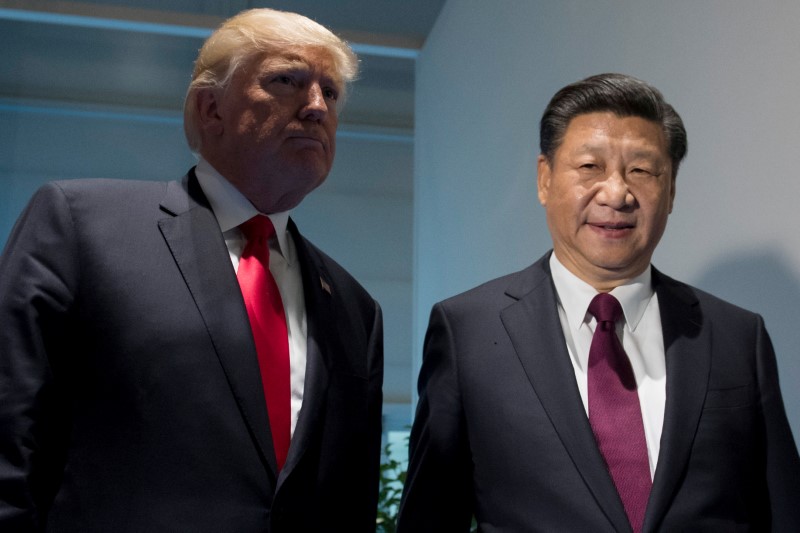(Bloomberg Opinion) -- When President Donald Trump announced a trade pact with Mexico to replace the North American Free Trade Agreement, attention immediately turned to Canada. But it’s in China – which wasn’t mentioned – that the the greatest impact could be felt.
In abandoning Nafta, the U.S. appears to be moving toward a single trade bloc that might also embrace Canada. The Mexico accord tightens rules of origin on automobiles, so that 40 percent to 45 percent of their content must be made by domestic companies whose workers earn at least $16 an hour. This limits the scope for assembly in Mexico with Chinese components, favoring higher-value parts from manufacturers covered by the agreement.
The origin requirement is clearly aimed at countries that either trans-ship or use Mexico as an assembly center. The announcement says the “new rules will help ensure that only producers using sufficient and significant United States and Mexican parts and materials receive preferential tariff benefits.” Taken with certification for local producers and particular rules for textiles, it does look as if the draft had China partly in mind.
Other aspects appear to target concerns about China more directly. The section on intellectual property addresses national treatment of copyrights, clauses on common names and trademark protection – all long-standing U.S. issues with Beijing. As anyone who has walked through a Chinese street market knows, lookalike versions of famous brands, and thousands of “Apple (NASDAQ:AAPL)” stores, are commonplace.
In digital services, the draft limits a government’s ability “to require disclosure of proprietary computer source code and algorithms,” something China has mandated for most IT providers. This section also targets prohibitions being applied to “digital products distributed electronically,” such as Facebook (NASDAQ:FB) and Twitter. The data and financial-services obligations even prohibit local data-storage requirements: Beijing has declared the audit records of Chinese firms listed in New York off-limits to U.S. regulators, for example.
If doubts remained, consider the environment section: Mexico and the U.S. agreed to prohibit “shark-finning,” the practice of cutting the fins from sharks and leaving them to die. China is a major consumer of shark fins. The two sides also agreed to prohibit illegal or unregulated fishing.
The labor section of the accord requires “worker representation in collective bargaining.” While independent unions in Mexico and the U.S. have varied challenges, they don’t face the level of official intimidation of labor activists in China.
There appear to be two major factors at work. First, the U.S. seems to be aiming for a North American bloc, not just a free-trade area. By locking in rules of origin and wage requirements, it’s attempting to define specific types and amounts of work for an overhauled Nafta. Phrases like Made in China 2025 and aluminum overcapacity aren’t used, but they might as well be.
Second, by targeting areas like labor and digital services, the Mexico pact lays the groundwork for what the U.S. might seek in other trade agreements. The right to collective bargaining, strengthened intellectual-property protection and access to financial records are less worries about Mexico or Canada than about China.
Of the greatest potential importance, the Mexico deal may put the U.S. on a path to assembling a coalition against China. When Trump angered his allies at every turn, Beijing felt little real threat and could present itself as a new global leader in free trade. If the administration can now create a bloc with Canada, this would not only alter the dynamic of the U.S.-China trade dispute, it could pave the way for similar agreements with Europe.
The result might be an updated common understanding of free trade that would isolate China. At a minimum, it would make an agreement with Beijing much harder to reach.
